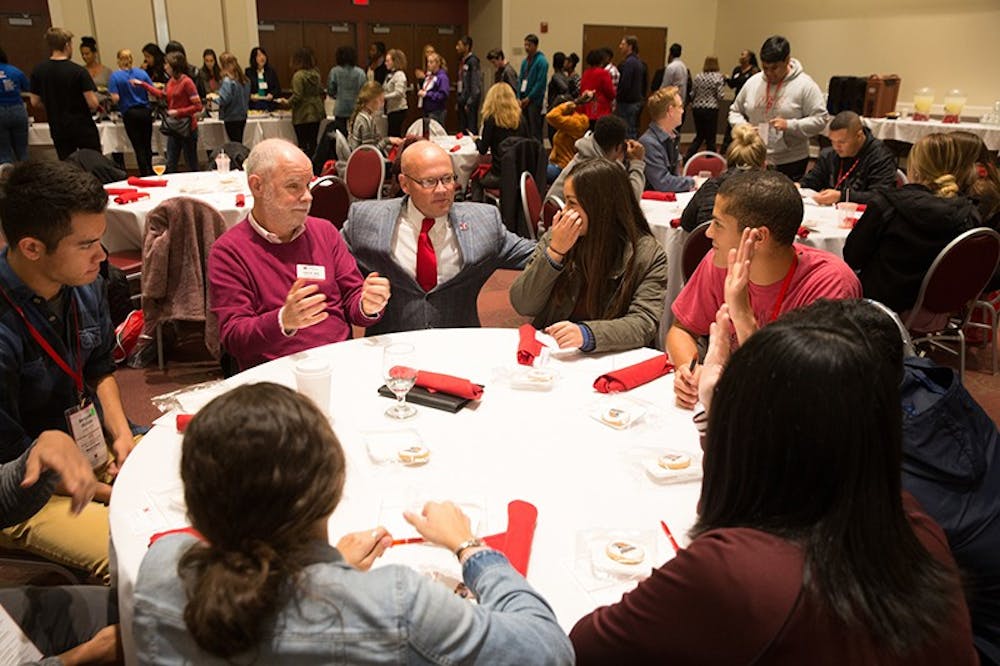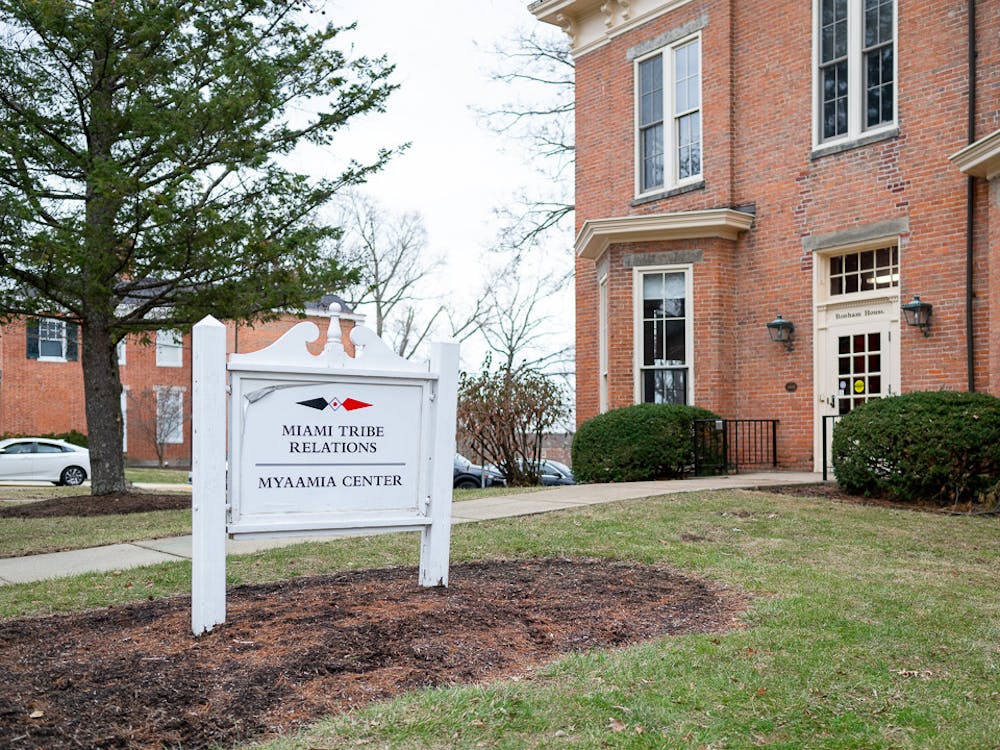Wayne L. Dancie, a student at Miami University, was walking across a bridge on Western Campus when he decided “Bridges” would be the perfect name for his new program that would increase diversity at Miami. This November, Miami University’s Bridges Program is celebrating its 40th anniversary.
The program gives high school seniors from underrepresented populations the opportunity to learn more about Miami, partake in social activities, sit in on a class, and stay the weekend in a dorm with a host student.
According to a document obtained from Monica Adkins, the senior assistant director of the Student Success Center, the original proposal of the program outlined three objectives; the first was to acquaint minority high school students with Miami and provide them with admissions and financial aid information. The second was to increase minority student enrollment, and the third was focused on creating an opportunity for Miami students, faculty and staff to interact with minority communities.
According to Adkins, Alumni Relations will host a webinar to cover the history of the program, and a current student will speak about their experience in the program today to celebrate 40 years.
Although a date hasn’t been finalized yet, the webinar will be live on the Miami University Black Alumni Instagram page.
In 2016, an extension of the Bridges Program emerged called the Bridges Scholars. Upon completion of the high school program, students admitted to Miami University are automatically considered Bridges Scholars.
Monica Adkins, the senior assistant director of the Student Success Center, started Bridges Scholars after many students expressed interest in continuing the program in college.
“Students were going through Bridges in high school, and many of them were deciding to attend Miami because of the experience they had, but there wasn’t any official kind of community,” Adkins said.
Eli Davies, a junior political science and urban and regional planning double major, participated in Bridges in 2019. Davies enjoyed the Bridges Program because it allowed him to get a more individualized experience at Miami while meeting other people with similar interests.
“At my high school, I feel like I got lucky and found a group of people easily. Whereas here, I think it’s just so big that you have to actively seek out things a bit more if you’re a minority student,” Davies said. “So it makes it easy for students who come here to see they have a place to go to when they feel like they might be out of place in an institution that is predominately white and straight.”
Taylor Neff, a sophomore psychology major, participated in the Bridges Program her senior year of high school in November 2019. She is still active in the program and is excited to host a Bridges participant within the next few months.
Neff encourages high school students to participate in the program because she got a more personalized tour of Miami while meeting some of her best friends.
Enjoy what you're reading?
Signup for our newsletter
“Not only did I get that college experience and get to see what it was like at Miami, but I also made friends that will probably be my friends for the rest of my life,” Neff said.
In addition to celebrating its 40th anniversary this year, the Bridges Program was also recently awarded the INSIGHT Into Diversity Inspiring Programs in STEM Award.
Holly Mendelson, publisher of the INSIGHT Into Diversity magazine, wrote in an email to The Miami Student that the Bridges Program was chosen as a recipient because it met criteria including introducing diverse individuals to academic, extracurricular and professional opportunities in STEM.
According to INSIGHT, just less than 40% of the Bridges Scholars enroll in Miami’s College of Engineering and Computing.
Although the Bridges Program continues to build a safe environment for students of diverse backgrounds, Adkins hopes that 40 years from now, there won’t need to be a Bridges Program.
“To be honest, it would be great if we didn't need it anymore,” Adkins said. “The purpose of the program is to diversify Miami, and if we’re doing our job, and improving in areas of diversity, equity and inclusion, then it should eventually be a part of the culture, and there wouldn’t be a need to have a program like this.”




